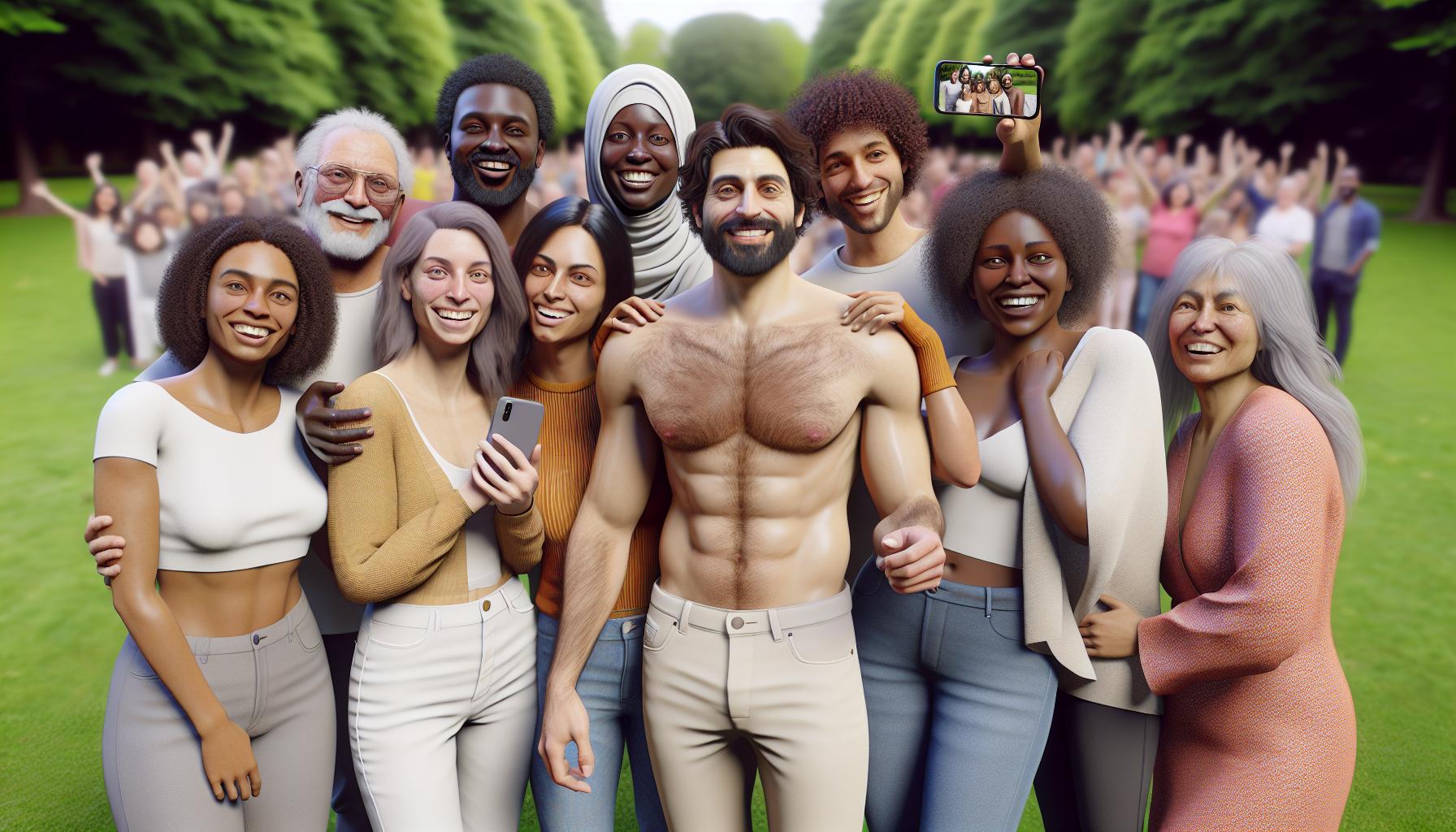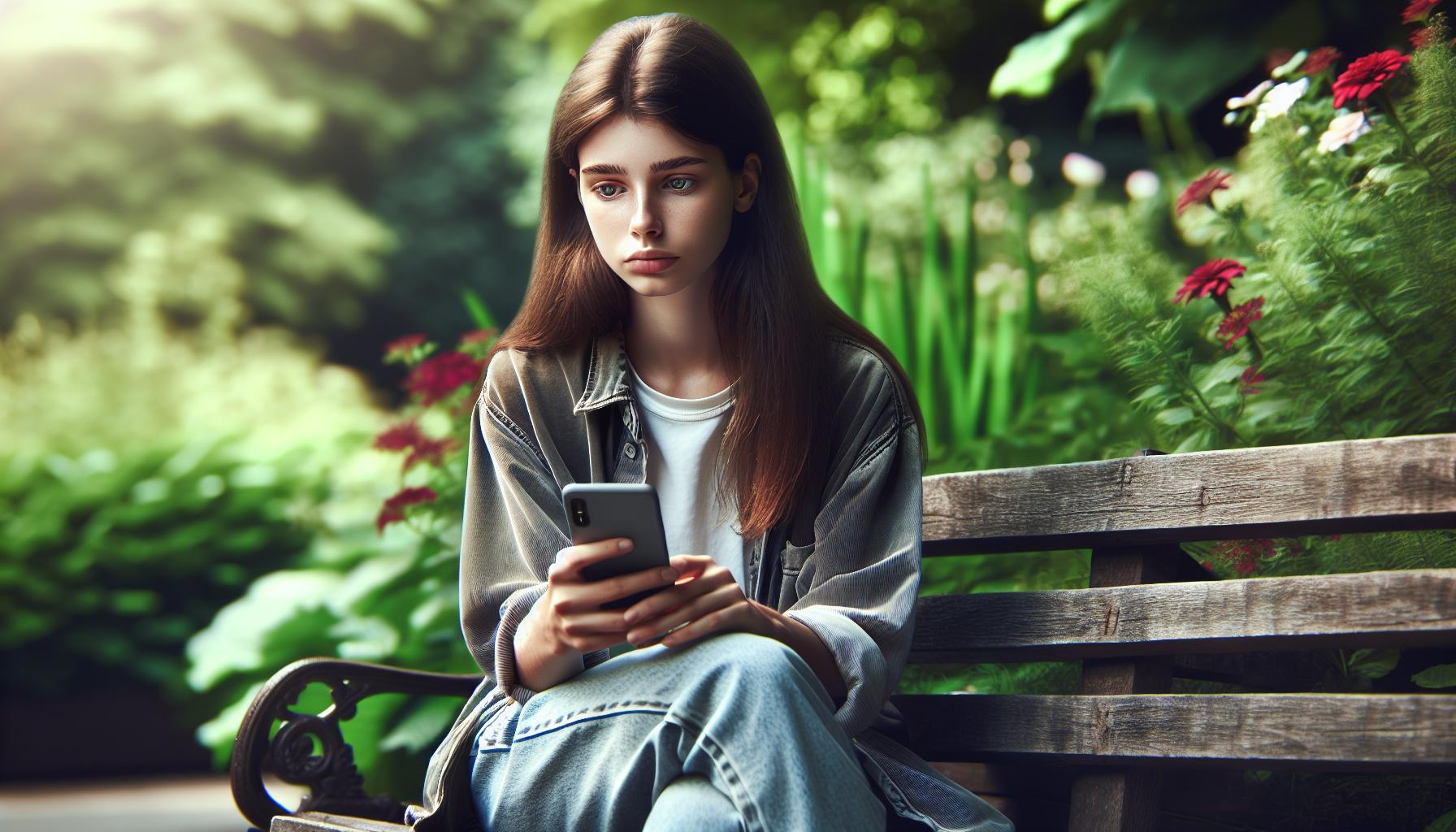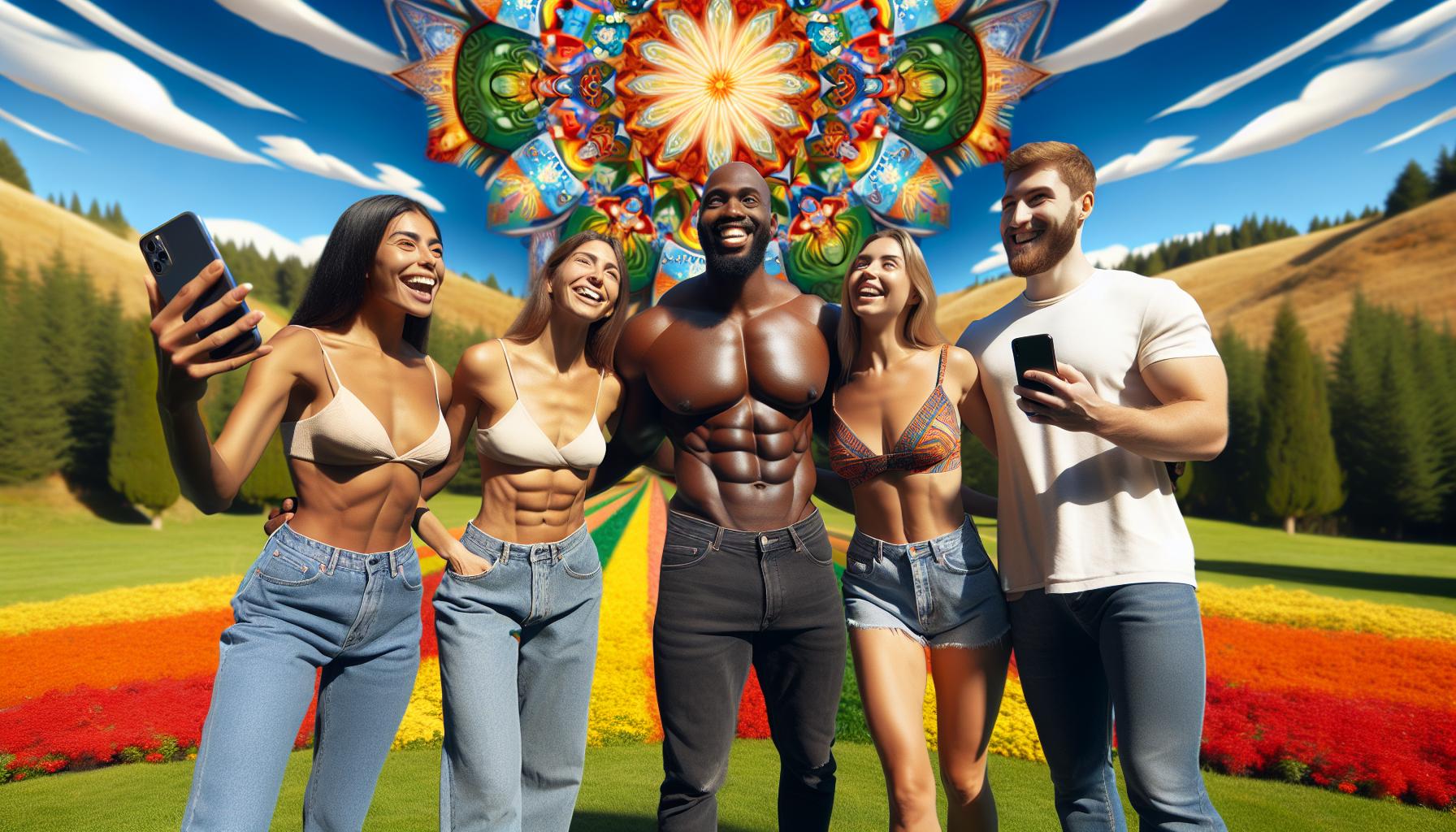In today’s digital age, social media has become a powerful force shaping perceptions of beauty and self-worth. With endless streams of curated images and lifestyle posts, it’s easy for individuals to compare themselves to idealized versions of reality. This constant exposure can lead to unrealistic expectations and a distorted body image, particularly among young people.
Research shows that platforms like Instagram and TikTok can significantly impact how individuals view their bodies. As users scroll through feeds filled with influencers and celebrities, feelings of inadequacy often emerge. Understanding these dynamics is crucial for fostering a healthier relationship with self-image in a world dominated by social media.
Key Takeaways
- Social media significantly influences body image perceptions, with curated content often setting unrealistic beauty standards, especially among young users.
- Platforms like Instagram and TikTok can lead to feelings of inadequacy, with 70% of teens believing social media affects their self-esteem.
- Positive aspects of social media include the creation of supportive communities and the sharing of empowering body stories that encourage self-acceptance.
- Negative effects stem from constant comparisons and exposure to edited images, which can exacerbate body dissatisfaction and mental health issues.
- Users can mitigate negative impacts by curating their feeds to follow diverse and body-positive accounts, promoting healthier self-image narratives.
- Engaging in body positivity movements and supportive online communities fosters resilience against harmful societal pressures and enhances overall well-being.
How Social Media Affects Body Image
Social media serves as a powerful platform where individuals frequently encounter curated images and videos that promote specific beauty standards. It fosters environments where appearances matter significantly, often exacerbating issues related to body image. Studies indicate that 70% of teens believe that social media influences their self-esteem and body perception.
Visual-based platforms like Instagram and TikTok particularly amplify this phenomenon. Users engage with posts that often feature meticulous editing, filters, and idealized bodies, creating unattainable standards. This exposure can lead to various outcomes, including body dissatisfaction, eating disorders, and mental health issues.
Social media algorithms prioritize content that garners high engagement, often favoring posts that align with traditional beauty ideals. As a result, users may unintentionally internalize these ideals, associating self-worth with physical appearance. Research shows that 67% of individuals report negative feelings after engaging with social media content related to body image.
Body positivity movements emerge in response, aiming to challenge and diversify beauty standards. They promote self-acceptance and encourage users to embrace their appearances. However, the effectiveness of these movements can vary, especially when juxtaposed with highly edited visuals that dominate feeds.
Understanding the complex relationship between social media and body image is crucial for fostering healthier online interactions. Awareness initiatives and educational programs can promote critical thinking about the content individuals consume, potentially mitigating harmful effects on self-image.
Positive Effects Of Social Media On Body Image

Social media can positively influence body image by facilitating connection and empowering individuals through shared experiences. This section explores how it fosters community support and encourages the sharing of positive body narratives.
Building Community And Support
Social media platforms promote community building among individuals who face similar body image challenges. Groups and pages dedicated to body positivity cultivate supportive environments where members share their experiences. These platforms allow users to encourage one another, fostering resilience and self-acceptance. Participation in these supportive networks can lead to improved mental well-being, as 73% of participants in community-driven initiatives report enhanced self-esteem.
Sharing Positive Body Stories
Social media serves as a platform for sharing empowering body stories that highlight diverse experiences and celebrate individuality. Influencers, activists, and everyday users post testimonials about their journeys toward self-acceptance. These narratives challenge conventional beauty ideals, providing relatable content that inspires others. Research indicates that 65% of individuals find inspiration and motivation from positive body stories shared online. Additionally, these stories can create a ripple effect, encouraging others to embrace their unique features and reject harmful societal standards.
Negative Effects Of Social Media On Body Image

Social media can significantly undermine body image, contributing to various mental health issues. Several factors play a role in shaping negative perceptions.
Comparison And Self-Esteem Issues
Comparison constitutes a major contributor to self-esteem issues associated with social media. Users often compare their appearances to the seemingly perfect images posted by influencers and peers. Research indicates that 60% of individuals report feeling inadequate after viewing these idealized representations. These constant comparisons create a cycle of dissatisfaction, leading to negative body image perceptions. Moreover, individuals with low self-esteem are particularly vulnerable, as they might rely heavily on external validation through likes and comments. This dependency can exacerbate feelings of worthlessness when engagement is low, reinforcing unhealthy body standards.
The Influence Of Filters And Editing
Filters and editing tools amplify unrealistic beauty standards on social media. Users often manipulate images, making skin appear flawless or altering body shapes, which misrepresents true appearances. A survey revealed that 80% of young adults express a desire to look like edited photos displayed online. Frequent exposure to these altered images contributes to discontent with natural features, promoting a distorted self-image. As a result, individuals may feel pressured to conform to these edited ideals, leading to unhealthy behaviors such as excessive dieting, cosmetic procedures, or developing body dysmorphic disorders. The pervasive use of filters showcases an unattainable reality, further damaging body image perceptions across social media platforms.
Social Media Platforms And Their Impact

Social media platforms play a critical role in shaping body image perceptions. Each platform has unique features that influence how users engage with beauty standards and body representations.
Instagram And Visual Standards
Instagram, with its visually-driven content, heavily influences beauty ideals. Curated feeds showcase photos that often adhere to narrow beauty standards, leading to heightened expectations for users. Research indicates that 70% of young people feel pressure to look a certain way due to Instagram images. Users frequently encounter highly edited visuals, promoting unrealistic comparisons. This exposure can contribute to body dissatisfaction, with 67% of individuals reporting negative emotions associated with scrolling through beauty-focused posts. The platform’s algorithm favors content that aligns with established beauty trends, reinforcing one-dimensional ideals and making it challenging for users to find diverse representations.
TikTok Trends And Body Image
TikTok’s bite-sized content and dynamic trends also impact body image significantly. Challenges and viral dances often feature idealized body types, shaping users’ aesthetic perceptions. About 65% of TikTok users admit feeling pressured to conform to trending beauty standards. The platform encourages trends that celebrate specific body shapes and sizes, yet these trends often portray a limited range of attractiveness. Users may feel compelled to alter their appearance to fit these viral trends, which can exacerbate feelings of inadequacy. While body positivity movements emerge within TikTok, the prevalence of idealized representation can overshadow these messages, making it essential for users to seek communities that promote body acceptance and challenge traditional norms.
Strategies For Healthy Social Media Use
Healthy social media use involves intentional actions to improve body image perceptions and foster positive interactions online. Implementing specific strategies can create a more supportive digital environment.
Curating Your Feed
Curating social media feeds significantly impacts body image. Users should follow accounts that promote diverse body types and challenge conventional beauty standards. Engaging with body-positive influencers helps counteract negative messaging. Regularly unfollowing or muting accounts that trigger feelings of inadequacy prevents harmful comparisons. Utilizing platform features to personalize content ensures a more positive experience, with algorithms adapting to user preferences for uplifting and varied representations.
Promoting Body Positivity
Promoting body positivity requires active participation in supportive communities. Joining groups focused on self-acceptance fosters an environment for sharing experiences and challenges. Participating in discussions that celebrate individuality encourages resilience against societal pressures. Sharing personal stories and uplifting content contributes to a collective narrative that prioritizes self-love. Actively supporting initiatives that challenge beauty norms on platforms like Instagram and TikTok cultivates a culture of acceptance and empowerment, positively influencing peer perceptions and mental well-being.
Conclusion
Navigating social media’s impact on body image requires awareness and intentionality. Users should actively curate their feeds to create a more positive online experience. By following accounts that celebrate diversity and promote body positivity, individuals can counteract the negative effects of idealized images. Engaging in supportive communities fosters resilience and self-acceptance.
It’s crucial to recognize the potential for social media to inspire and empower. Sharing personal stories and embracing individuality can challenge harmful beauty standards. Ultimately, fostering a healthier relationship with social media can lead to improved self-esteem and a more positive body image.
